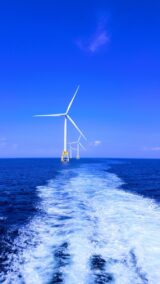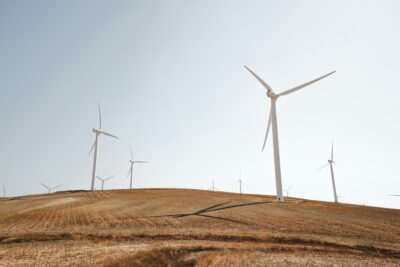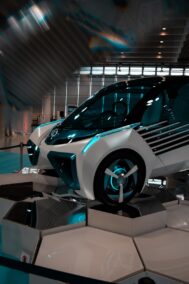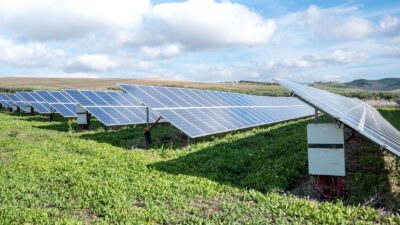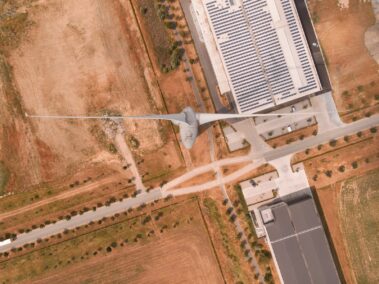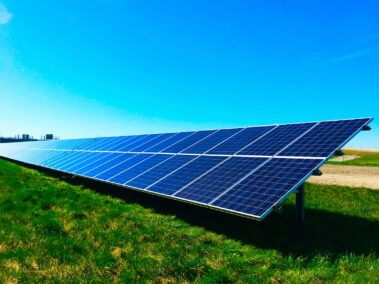Advancing Wind and Solar Energy Technologies
Overcoming Intermittency with Advanced Storage Solutions
Innovations in renewable energy technologies are crucial for addressing the challenges of intermittency and resource variability in wind and solar power generation. As the focus on sustainability intensifies globally, countries like Saudi Arabia and the UAE are investing heavily in research and development (R&D) to ensure the long-term viability of renewable energy. One significant advancement in this field is the development of advanced energy storage solutions, which play a vital role in mitigating the intermittency issues associated with wind and solar energy.
Energy storage technologies such as lithium-ion batteries, flow batteries, and emerging solid-state batteries offer promising solutions to store excess energy generated during peak production periods and release it during low production times. This capability ensures a consistent and reliable energy supply, even when wind and solar resources are variable. In Riyadh and Dubai, several large-scale energy storage projects are underway, aiming to enhance grid stability and support the integration of more renewable energy into the national grids.
Furthermore, the integration of Artificial Intelligence (AI) and blockchain technology into energy management systems is revolutionizing the way energy storage is managed. AI algorithms can predict energy production patterns based on weather forecasts and historical data, optimizing the charging and discharging cycles of batteries. Blockchain technology, on the other hand, ensures transparency and security in energy transactions, enabling efficient and reliable energy trading and distribution. These technological advancements are not only enhancing the performance of renewable energy systems but also contributing to the overall sustainability goals of the region.
Innovations in Wind Energy Technologies
The wind energy sector has seen remarkable advancements in recent years, with innovative technologies driving increased efficiency and performance. One such innovation is the development of larger and more efficient wind turbines. Modern wind turbines are designed with longer blades and advanced materials that can capture more wind energy, even at lower wind speeds. In Saudi Arabia, the construction of wind farms equipped with these state-of-the-art turbines is contributing to the country’s ambitious renewable energy targets.
Vertical-axis wind turbines (VAWTs) are another significant innovation in wind energy technology. Unlike traditional horizontal-axis wind turbines (HAWTs), VAWTs can capture wind from any direction, making them highly suitable for urban environments where wind patterns are unpredictable. Dubai has been exploring the deployment of VAWTs in various urban settings, aiming to harness wind energy more effectively within the city.
Additionally, offshore wind farms are gaining traction as a viable solution for maximizing wind energy potential. Offshore wind farms, located in bodies of water, benefit from stronger and more consistent wind speeds compared to onshore locations. The UAE, with its extensive coastline, is exploring the development of offshore wind projects to diversify its renewable energy portfolio. These innovations in wind energy technologies are not only enhancing energy production but also reducing the environmental impact and land use associated with traditional energy sources.
Innovations in Solar Energy Technologies
Solar energy technologies have also seen significant advancements, driven by the need to improve efficiency and reduce costs. One of the most notable innovations in this field is the development of perovskite solar cells. Perovskite solar cells have shown great promise due to their high efficiency and low production costs compared to traditional silicon-based solar cells. Research and development efforts in Saudi Arabia and the UAE are focused on scaling up the production of perovskite solar cells to meet the growing demand for renewable energy.
Bifacial solar panels are another breakthrough in solar energy technology. Unlike conventional solar panels that capture sunlight only from one side, bifacial panels can absorb light from both sides, increasing their overall energy output. These panels are particularly effective in environments with high albedo surfaces, such as desert regions in Saudi Arabia, where they can harness reflected sunlight to boost energy production.
Furthermore, solar tracking systems are enhancing the performance of solar installations by optimizing the angle of solar panels to follow the sun’s trajectory throughout the day. This technology maximizes the amount of sunlight captured, thereby increasing the efficiency and output of solar power plants. In Dubai, several solar farms are incorporating solar tracking systems to enhance their energy production capabilities. These innovations in solar energy technologies are crucial for addressing the challenges of resource variability and ensuring the long-term viability of solar power.
Leadership and Management in Renewable Energy Projects
Effective Leadership in Renewable Energy Initiatives
Leadership plays a pivotal role in the successful implementation of renewable energy projects. Business executives and mid-level managers must possess a clear vision and a strong commitment to sustainability to drive these initiatives forward. In Saudi Arabia and the UAE, where renewable energy is a national priority, leaders in the energy sector are setting ambitious goals and mobilizing resources to achieve them.
Effective leadership involves fostering a culture of innovation and collaboration. By encouraging cross-disciplinary teamwork and leveraging the expertise of engineers, scientists, and project managers, leaders can ensure that renewable energy projects are executed efficiently and effectively. In Riyadh, for example, collaborative efforts between government agencies, research institutions, and private companies are driving advancements in renewable energy technologies and their deployment.
Moreover, leadership in renewable energy initiatives requires a deep understanding of regulatory frameworks and market dynamics. Business leaders must navigate complex regulatory landscapes and engage with policymakers to advocate for favorable policies that support renewable energy growth. In the UAE, proactive engagement with regulatory bodies has resulted in the implementation of supportive policies and incentives that encourage investment in renewable energy projects.
Project Management Skills for Renewable Energy Projects
Project management skills are essential for the successful execution of renewable energy projects. These projects often involve large-scale infrastructure development, significant capital investment, and coordination among multiple stakeholders. Effective project management ensures that renewable energy projects are completed on time, within budget, and to the highest standards of quality.
A key aspect of project management in renewable energy is risk management. Project managers must identify potential risks, such as technical challenges, supply chain disruptions, and regulatory changes, and develop strategies to mitigate them. In Dubai, advanced project management tools and techniques are being employed to manage the complexities of large-scale solar and wind projects, ensuring their successful delivery.
Additionally, project managers must focus on stakeholder engagement and communication. Keeping stakeholders informed and involved throughout the project lifecycle is crucial for gaining their support and addressing any concerns. In Saudi Arabia, transparent and proactive communication strategies have been instrumental in securing community buy-in and ensuring the smooth implementation of renewable energy projects.
Conclusion: The Future of Renewable Energy in Saudi Arabia and the UAE
The future of renewable energy in Saudi Arabia and the UAE looks promising, with ongoing research and development efforts driving continuous advancements in wind and solar energy technologies. By addressing the challenges of intermittency and resource variability, these innovations are ensuring the long-term viability of renewable energy and contributing to the sustainability goals of both nations.
As business leaders and project managers continue to champion renewable energy initiatives, their commitment to innovation, effective leadership, and strategic project management will be critical in achieving success. The integration of modern technologies, such as AI and blockchain, will further enhance the performance and reliability of renewable energy systems, positioning Saudi Arabia and the UAE as global leaders in the transition to a sustainable energy future.
In conclusion, the advancements in renewable energy technologies and the effective leadership and management practices in Saudi Arabia and the UAE are paving the way for a sustainable and prosperous future. By continuing to invest in R&D, embracing innovative solutions, and fostering a culture of collaboration and sustainability, these nations are setting a benchmark for renewable energy development worldwide. The journey towards a renewable energy future is challenging, but with the right strategies and commitment, it is an achievable and impactful goal.
#RenewableEnergy #Sustainability #WindEnergy #SolarEnergy #Innovation #BusinessLeadership #SaudiArabia #UAE #Riyadh #Dubai #AI #Blockchain #ModernTechnology #ProjectManagement


